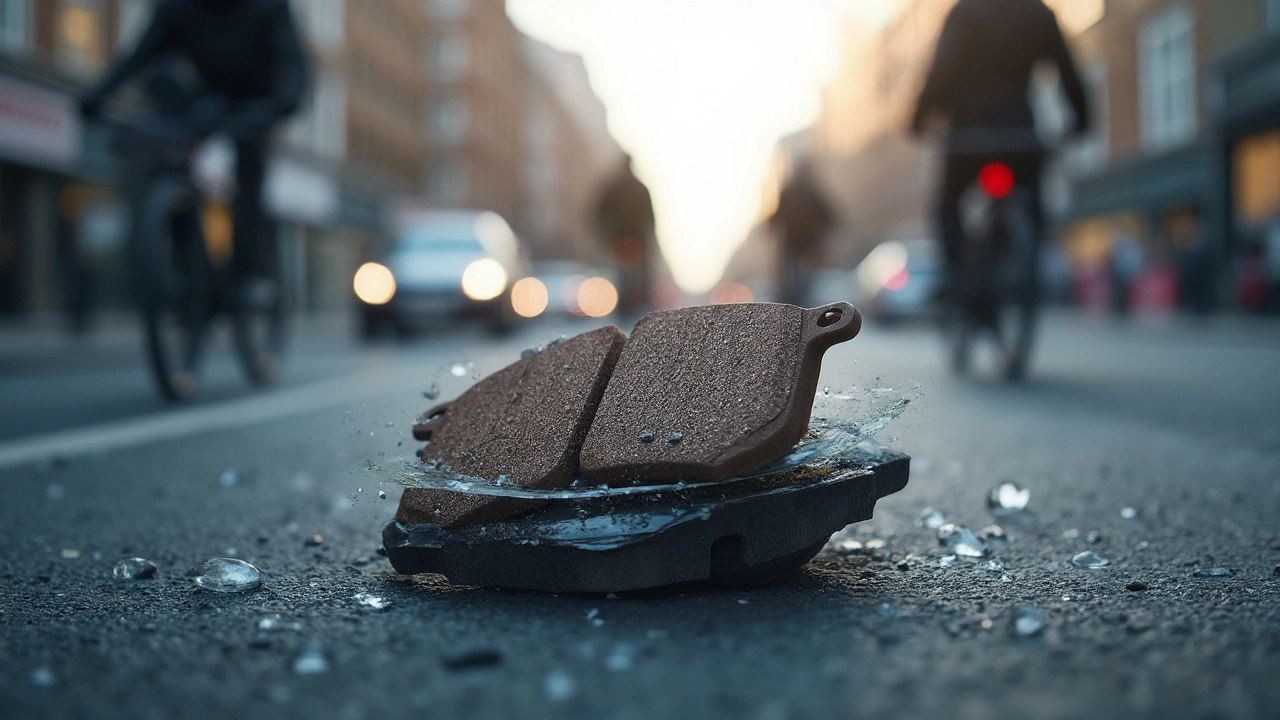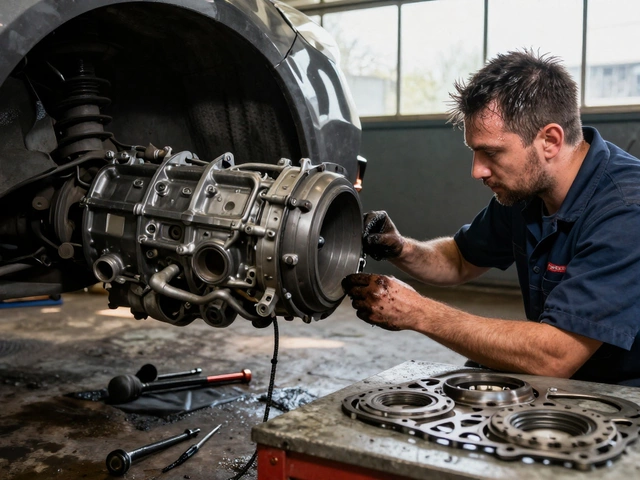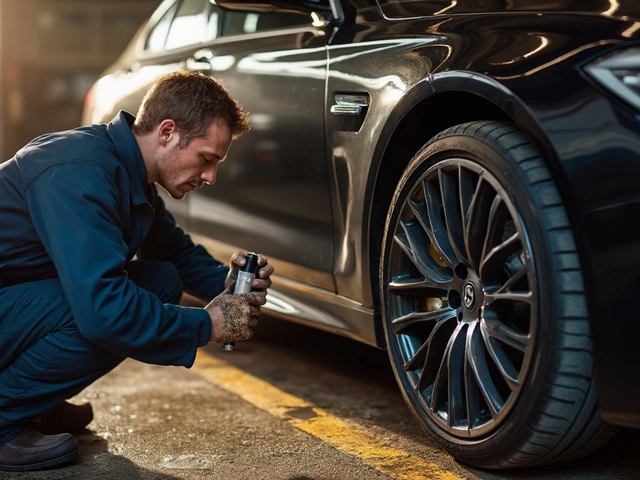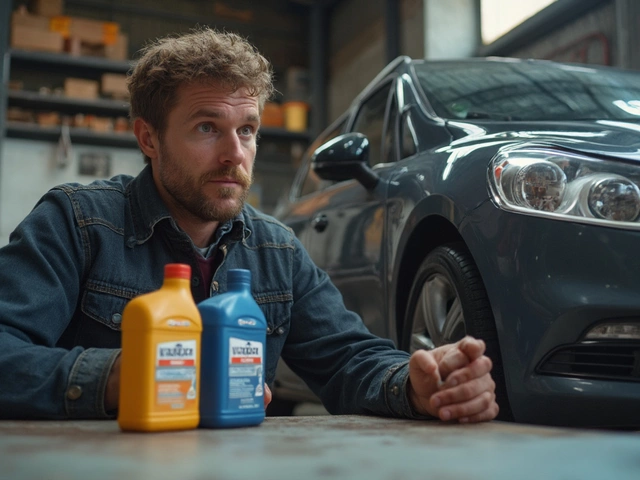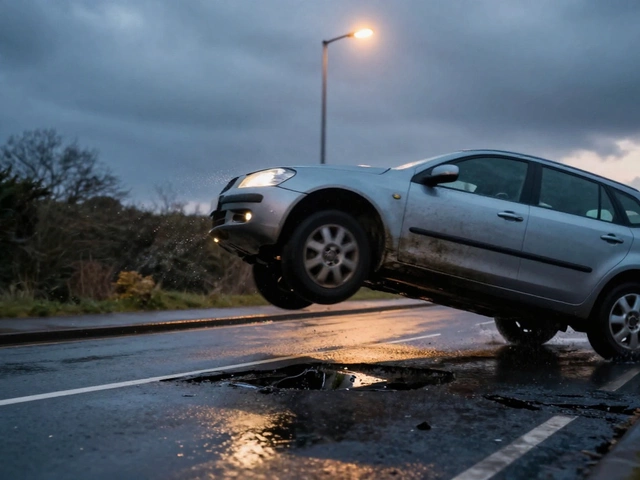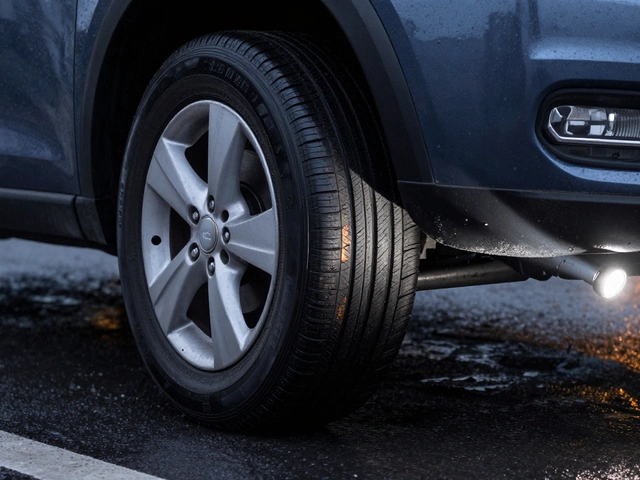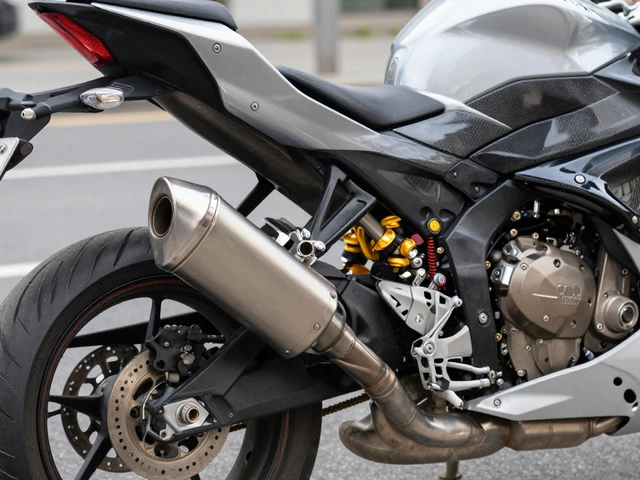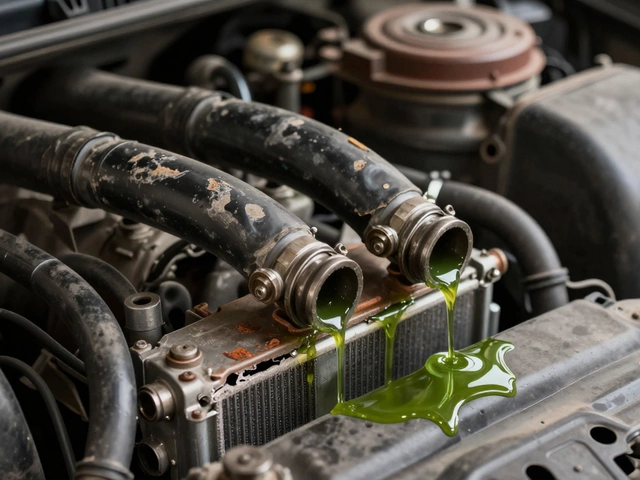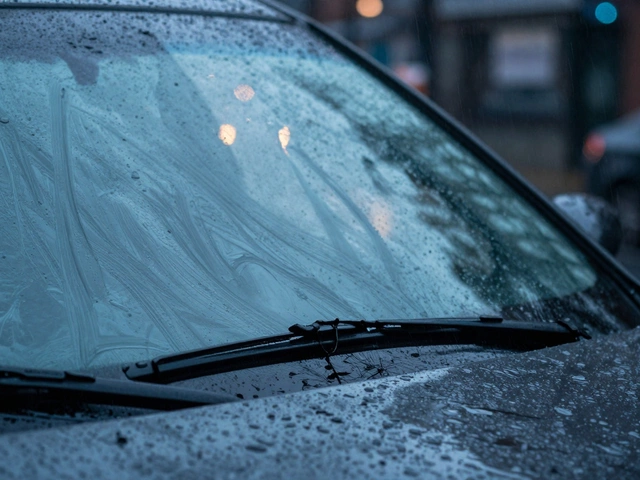Brake pads might not be the most glamorous part of your car, but they're kind of a big deal when it comes to keeping your vehicle safe. Ever wondered how many miles your brake pads should last? Well, sit tight because we're about to dive into that.
On average, brake pads usually last somewhere between 30,000 and 70,000 miles. That's a pretty broad range, right? But hey, every car and driver is a bit different. A lot depends on your driving habits and the road conditions you face regularly. Stop-and-go traffic in a city is a whole different story compared to cruising down a highway.
Some experts suggest checking them every 15,000 miles, just to be on the safe side. If you're hearing squeaks or feeling vibrations when hitting the brakes, those are red flags you shouldn't ignore. Think of them as your car's way of asking for some attention.
- Understanding Brake Pad Lifespan
- Factors Affecting Brake Pad Wear
- Signs Your Brake Pads Need Replacement
- How Driving Habits Impact Brake Life
- Extending the Lifespan of Brake Pads
- When to Consult a Professional
Understanding Brake Pad Lifespan
Alright, let's tackle the nitty-gritty of how long those brake pads should last. The expected lifespan of brake pads can be all over the place. On average, you’re looking at anywhere from 30,000 to 70,000 miles. That's like the distance between coastlines in the U.S.!
Here's a fun fact: Some car manufacturers even design brake pads to last over 100,000 miles. But don't count on that without checking them regularly. It’s like hoping your sneakers will run a marathon without a tear—possible but risky.
Why Such a Wide Range?
It's not as cut and dried as it seems. Several factors play a role in how long your brake pads might last:
- Driving Habits: Frequent, hard braking can shave thousands of miles off their lifespan.
- City vs. Highway: Stop-and-go traffic is your brake pads’ worst nightmare.
- Pad Material: Some materials like ceramic last longer than metallic ones. Do a little homework on what's in your wheels.
Even something as basic as the type of car you drive can make a difference. Bigger vehicles might wear through them faster because they’re heavier and need more stopping power.
For some perspective, a survey showed that about 60% of drivers replaced their brake pads within 50,000 miles. If you’re not sure where you stand, it's worth asking a pro to give them a look.
| Factor | Mileage Reduction |
|---|---|
| Frequent Hard Braking | Reduces lifespan by 30% |
| City Driving | Reduces lifespan by 20% |
| Heavy Vehicle | Reduces lifespan by 15% |
Factors Affecting Brake Pad Wear
So, what determines how long your brake pads actually last? It's more than just luck or the car manufacturer. Several factors come into play that can shorten or extend their lifespan.
1. Driving Habits
Your style behind the wheel can heavily impact the wear on your brake pads. Frequent hard braking, typical in city driving, causes more friction and therefore faster wear. On the other hand, if you're the slow-and-steady type on highways, your pads might have more life in them.
2. Road Conditions
Stop-and-go traffic, hilly terrains, and wet or icy conditions require more frequent braking. This adds stress to the pads and can cut down their longevity. Frequent drivers in busy urban areas might notice their pads don't last as long as those in rural settings.
3. Brake Pad Material
Not all brake pads are created equal. Different materials like organic, semi-metallic, and ceramic have unique characteristics. Ceramic pads tend to last longer and make less noise but can be pricier. Semi-metallic pads offer a good balance of durability and affordability.
4. Vehicle Weight
Heavier vehicles, like trucks and SUVs, naturally require more effort to stop. This means the brake pads in these vehicles often wear out faster compared to lighter cars.
5. Heat Generation
Each time you brake, pads generate heat. If this heat isn't dissipated effectively, it can lead to quicker wear. This is more common in high-performance vehicles or those often driven on mountainous roads where braking is frequent.
6. Brake System Condition
If any component of your brake system is worn or faulty, like the rotors or calipers, it can cause the pads to wear unevenly or faster. Regularly servicing your brakes can prevent such issues and prolong pad life.
Consider this simple breakdown of various brake pad materials and their average lifespan:
| Material | Average Lifespan |
|---|---|
| Organic | 20,000-45,000 miles |
| Semi-Metallic | 30,000-60,000 miles |
| Ceramic | 40,000-70,000 miles |
Remember, while these factors give a general idea, always keep an ear out for peculiar sounds or changes in your braking performance. Your car's manual and a decent mechanic are your best friends in this scenario!
Signs Your Brake Pads Need Replacement
Recognizing when your brake pads are due for replacement is crucial for keeping your vehicle safe. Here are some tell-tale signs that it might be time to give them a closer look.
1. Squeaking or Squealing Noises
If you hear a metallic squeal when you press the brakes, it's often due to a small indicator, a metal shim, that makes contact with the brake rotor. It's like a friendly reminder to inspect your brake pads. Ignoring this could lead to more serious issues down the road.
2. Grinding Sound
Grinding is the sound you definitely do not want to hear. This usually means your brake pads are completely worn out, and the metal of the calipers is chewing into your rotors. This isn't just bad for your car maintenance budget – it's also a safety hazard.
3. Vibrations When Braking
Feeling a pulsing or vibrating sensation in the brake pedal usually suggests warped rotors. Though not always a pad issue, it highlights an imbalance in the brake system that’s often caused by worn-out pads.
4. Taking Longer to Stop
If you notice that your car takes longer to come to a full stop, it’s an immediate sign you should have your brakes checked. Reduced effectiveness in your braking system can be due to thin brake pads.
5. Brake Pad Thickness
Don't wait for sound or feel to tell you what's going wrong. Take a peek at your brake pads' physical condition. If they're less than 1/4 inch thick, it’s time to consider replacement. Keep a gauge handy or ask your mechanic to check during routine service.
Checking these signs regularly can help prolong the life of your brake pads and keep your vehicle safety intact, preventing unwanted surprises on the road.

How Driving Habits Impact Brake Life
Your driving habits can make or break the lifespan of your brake pads—literally. It all boils down to how and where you drive. Think of your car as an extension of yourself; if you're rushing around with constant stress, it's gonna take a toll.
City vs Highway Driving
If you're mostly a city driver, then brace yourself, because stop-and-go traffic can really wear out your brake pads. Each time you hit the brakes, even lightly, tiny bits of the brakes get shaved away. Those repeated stops chew through your pads faster than you might think.
On the flip side, long stretches on the highway allow your car to coast along without much braking. Your pads should last longer when you're cruising at consistent speeds.
Riding the Brakes
A big no-no is riding the brakes. This happens when you're driving with your foot resting lightly on the brake pedal, keeping those pads engaged more than needed. Think about lifting your foot off when you don't actually need to be slowing down.
Aggressive Driving
Do you brake hard at the last minute? Aggressiveness can take your brake pads from decent to done in no time. Try to anticipate stops and give yourself room to slow down gradually; your
Data Table: Brake Pad Wear Rate
For those who love numbers, a study showed the wear rate of brake pads based on driving conditions:
| Driving Condition | Wear Rate (mm/1000 miles) |
|---|---|
| Urban | 1.2 |
| Highway | 0.9 |
| Aggressive | 1.5 |
So, next time you're out on the road, consider these habits and how they might be impacting the life of your brake pads. Making small adjustments in how you drive could save you some serious money and keep your car safer for longer!
Extending the Lifespan of Brake Pads
We all want our brake pads to last as long as possible, right? Let's check out a few simple tricks to help keep them in good shape longer and save some bucks along the way.
Practice Light Braking
The more you stomp on the brakes, the faster they'll wear out. Try to be more gentle by anticipating stops and slowing down gradually. It may feel a bit slow-paced, especially if you're used to zipping around town, but your brake pads will thank you.
Modify Driving Habits
Keep an eye on your speed. The faster you go, the harder your brake pads need to work. Keeping it steady at moderate speeds, especially in city traffic, can make a big difference in extending their life.
Unload the Excess Weight
Did you know that extra weight can put more strain on your brakes? If you've been riding around with a trunk full of stuff you don't need, it's probably time for a clear-out. A lighter car means less stress on your braking system.
Timely Checks and Maintenance
Regular check-ups might seem boring, but they can be a life-saver. Have your brakes inspected by a pro at least once a year. They'll catch any early signs of wear and tear, sparing you from bigger problems later.
Consider Brake Pad Quality
All brake pads are not created equal. Investing in high-quality pads might cost more upfront, but they tend to last longer and perform better. It's worth considering if you're committed to keeping your vehicle in top-notch condition.
Here's a little nugget of info: A study showed that people maintaining their brakes efficiently could get up to 25% more life out of them. So, a little planning and effort can go a long way!
When to Consult a Professional
There comes a time when a little DIY magic isn't enough and it's smart to call in the professionals. So, when should you chat with a mechanic about your brake pads? Let's break it down.
Persistent Noises: If your brakes sound like they're screaming for help every time you tap them, that's a sure sign to get them checked out. Squeals or grinding sounds mean it's probably time for a new set of brake pads.
Dashboard Warning Lights: Modern cars often have a brake warning light on the dashboard. If that light pops on, don't ignore it because it's not just for show. It means the sensor is detecting uneven wear or another issue that requires a professional's attention.
Strange Brake Pedal Feel: If pressing the brake feels spongy or you notice it sinks to the floor, it's not just unnerving, it's dangerous. These issues can indicate air in the brake lines or even problems with the hydraulic system. Definitely a job for an expert.
Vibrations When Braking: Feeling a shake, rattle, or roll when you hit the brakes is more than just annoying. It usually points to warped rotors, which a professional needs to address.
Regular Maintenance Checks
Even if your car is behaving perfectly, it's smart to include brake checks as part of your regular maintenance routine. This can prevent problems before they start. Plus, it gives you peace of mind knowing your car's safety features are in top shape.
Remember, while some car maintenance tasks can be a fun DIY project, your vehicle's safety shouldn't be one of them. When in doubt, consult the pros. They'll make sure your brake pads are roadworthy and keep you and everyone else safe out there.
